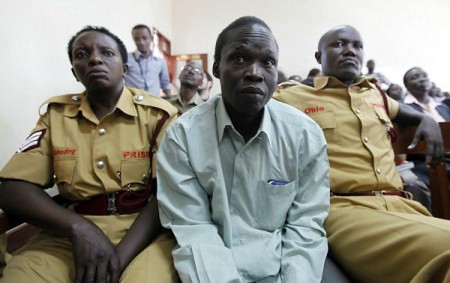Éléments de contexte :
La 69ème élection du Conseil de sécurité des Nations unies a eu lieu le 17 octobre 2013 pendant la 68ème session de l’Assemblée générale des Nations unies au siège des Nations unies, à New York.
Le Conseil de sécurité se compose de quinze Membres des Nations unies, dont cinq permanents et dix élus par l’Assemblée générale qui « tient spécialement compte, en premier lieu, de la contribution des Membres de l’Organisation au maintien de la paix et de la sécurité internationales et aux autres fins de l’Organisation, et aussi d’une répartition géographique équitable » (Charte des Nations unies, article 23).
Chaque année, l’Assemblée générale élit cinq membres non-permanents, soit la moitié de la totalité des sièges non-permanents, pour un mandat de deux ans. L’Assemblée générale, par sa résolution A/Res/18/1991, intitulée : « question d’une représentation équitable au Conseil de sécurité et au Conseil économique et social », adoptée en date du 17 décembre 1963, avait considéré que « la composition actuelle du Conseil de sécurité était inéquitable et déséquilibrée ». Elle avait ainsi précisé, dans cette même résolution, les critères pertinents de la « répartition géographique équitable » : 5 membres élus parmi les États d’Afrique et d’Asie ; 1 membre élu parmi les États d’Europe orientale ; 2 membres élus parmi les États d’Amérique latine et des Caraïbes ; et 2 membres élus parmi les États d’Europe occidentale et autres États. Il est intéressant de mettre ces critères en perspective avec ceux, actuels, provenant du Département de l’Assemblée générale et de la gestion des conférences. En effet, le groupe des États d’Afrique et d’Asie a été distingué en deux groupes. L’un intitulé « groupe des États d’Asie-Pacifique », l’autre intitulé « groupe des États d’Afrique ». Par ailleurs, il existe une pratique, qui semble à ce stade bien établie, revenant à attribuer un siège à un État arabe, alternativement entre les groupes des États d’Asie-Pacifique et d’Afrique.
L’élection du 17 octobre 2013 visait le renouvellement de cinq des dix sièges non-permanents du Conseil de sécurité. Les nouveaux membres étant élus pour un mandat de deux ans commençant le 1er janvier 2014 et s’achevant le 31 décembre 2015. Les décisions de l’Assemblée générale sur les questions importantes, dont fait partie l’élection des membres non-permanents du Conseil de sécurité, sont prises à la majorité des deux tiers des membres présents et votants (Charte des Nations unies, article 18 paragraphe 2).
Pour cette élection, les 5 membres sortants sont : l’Azerbaïdjan (groupe des États d’Europe orientale), le Guatemala (groupe des États d’Amérique latine et des Caraïbes), le Maroc (groupe des États d’Afrique), le Pakistan (groupe des États d’Asie-Pacifique), et le Togo (groupe des États d’Afrique). Les membres sortant ne sont pas immédiatement rééligibles.
Les membres qui ont été élus sont : le Nigeria (groupe des États d’Afrique), le Tchad (groupe des États d’Afrique), le Chili (groupe des États d’Amérique latine et des Caraïbes), la Lituanie (groupe des États d’Europe orientale), et l’Arabie saoudite (groupe des États d’Asie-Pacifique). Il est à noter que deux candidatures se sont retirées. S’agissant du groupe des États d’Afrique, la Gambie était initialement candidate. S’agissant du groupe des États d’Europe orientale, la Géorgie était initialement candidate.
Continue reading →




